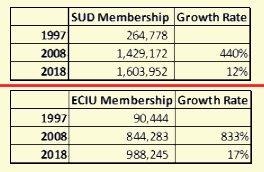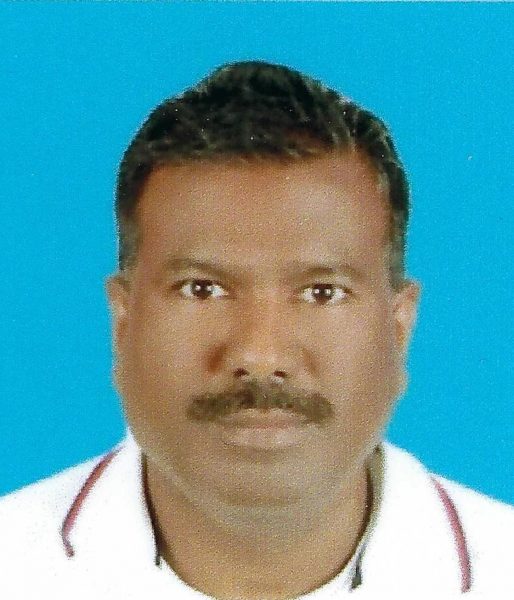The Problem with Baptisms in India
By Alexander Samuel | 26 April 2019 |
One cannot assume that every baptism done by Seventh-day Adventists in India is because the baptized person has given a clear testimony of his or her commitment to Jesus Christ. In this article I describe how, on too many occasions, conversions have been achieved in India.
My Family’s Baptism
About 55 years ago, both my parents were baptized into the Seventh-day Adventist Church in India. It was a quid pro quo arrangement: benefits were promised to my parents for agreeing to be baptized. My parents were told that their children would get free education, including room and board in an Adventist school if they would convert from Hinduism to Seventh-day Adventism. My parents were very poor. My father did not have a job at that time, and my mother stayed at home. They gladly accepted the offer so that they could send their children to school, and lower the financial burden of providing food and education for their children.
I was admitted to a Seventh-day Adventist School in Puliangudi when I was six years old. Although our parents were promised free education, room and board, we were made to work for our free tuition, accommodation and food: cleaning on the campus, cooking in the kitchen, fetching water from a well, construction work, gardening, etc. The promise to provide education, room and board for free was later broken by the church, and my parents were asked to pay.
When I was in the eighth grade, my Bible teacher and the school principal demanded that I be baptized. They told me that an important church leader, Elder D.R. Watts (who would become Southern Asia Division president from 1997 to 2008) was coming to the campus, and they needed to have people ready for baptism.
I was young and felt I wasn’t ready for baptism. As a result I was insulted and demeaned by the Bible teacher and the principal. They threatened to expel me from school. They told me that Ellen G. White was baptized when she was nine years old, and I should have been baptized at nine, as Ellen G. White had been. At 14, they said, I was already five years behind. (In fact, the young Ellen Harmon was baptized when she was 14). They didn’t follow through with the threat to expel me, and I didn’t get baptized until I chose to do so at 18.
This pressure to force boys and girls into baptism was not an exception in the Indian Adventist church then, but the norm.

D.R. Watts
How did this pressure to baptize people in India, no matter the means, come about? The answer may have to do with a missionary named D.R. (Ron) Watts, president of Southern Asia Division from 1997 to 2008.
The Adventist News Network reported on August 2008 that Elder Watts resigned in July 2008 from being president of SUD due to family health concerns. However, there is more to the story than what the church told. What we also know is that on July 3, 2008, the Supreme Court of India ordered that Elder Watts should not enter into the territories of India until further order from the Supreme Court. A few media reports claimed that the government of India had been trying to deport Elder Watts since 2003.
The reason was this: it was alleged that he had come into India on a business visa, but had engaged in activities, such as proselytizing, that were in violation of the business visa status.
In July Elder Watts was prohibited from traveling to India; in August, his wife was too sick to continue in the job. I think it is possible that Elder Watts left because he was under pressure because of indefensible evangelistic techniques.
And what had likely aroused the suspicions of the government is the growth in converts during Elder Watts’ years as division president.
Conversion in India
The tables below show that the membership of the Southern Asia Division grew by 440% during the 11 years (1997-2008) that Elder Watts was the president. However, over the following ten years (2008-2018), membership in the division grew only by 12%. In East Central India Union, in which area Elder Watts concentrated his efforts, the membership grew by 833% during the 11 years of his leadership. However, it dropped back to only 17% over the following 10 years (2008-2018).

Why such astronomical growth, falling to just a fraction in the next ten years? Is that realistic?
Probably not. As I’ve shown in my previous analysis of the membership trends in India, and backed up by the observations of Elder Gladwin Charan in the state of Uttar Pradesh, these statistics don’t even come close to reflecting the actual state of the church on the ground.
While India constitutionally guarantees freedom of religion, it is extremely sensitive to charges that evangelism is happening by dishonest means. Eight states have what are sometimes called “anti-conversion laws.” These laws don’t necessarily prohibit honest conversion, but they do prohibit conversion that involves coercion or allurements—that is, browbeating impressionable people into converting, or giving poor or illiterate people gifts, money, or incentives if they will become Christians.
According to the Lausanne Movement, a mission think tank, it has been these very charges that have led to anti-Christian violence in parts of India. So while Christians may claim that in these instances they’re being persecuted for Christ’s sake, they may in fact be facing opposition for being dishonest.
Is This Still Happening?
What is the Adventist church in India doing today with regard to baptism? Has it mended its ways and stopped bribing, threatening or coercing people into baptism?
I fear such behavior may be continuing. There is some documentary evidence circulating in social media that our church is paying poor and illiterate people to get baptized. Some, these stories say, are getting baptized multiple times to get multiple financial benefits. (The documents linked above may require a bit of interpretation for a western audience. In India, we abbreviate 100,000 to 1 Lakh. 1 Crore means 10,000,000. For an approximate rupees-to-dollars equivalent, divide rupees by 70.)
Please understand that I know that not every allegation made in the social media against the church is true. It is also possible that some of these letters from church leaders are worded in an unfortunate way. But given my own experience, neither can I say that the things claimed here are impossible. My own family experienced bribery and coercion to become Seventh-day Adventists, and I have heard this story from others over and over again.
Feeling that these are serious enough allegations that they warrant a transparent and independent investigation, I wrote to Elder Ted Wilson asking if the General Conference would investigate allegations of fake baptisms in India. I got a response from Pastor Magdiel Perez Schulz, Assistant to the President (Field Secretary), saying that he has forwarded my email to the Southern Asia Division officers so they can be aware of this issue and take the necessary steps after their findings.
My concern is that instead of spearheading an investigation themselves, they’ve returned the complaint back to the Southern Asia Division, from whence these problems originate. Organizations don’t do a very good job of investigating themselves, especially when it involves admitting bad practices on their own part. By passing the buck to the Southern Asia Division leaders, the General Conference has probably killed any chance of an impartial investigation.
A Dangerous and Dishonest Situation
A recent audit within East Central India Union revealed that 363,038 members are untraceable. I believe a better audit would have revealed the untraceable members to be even higher. Just as teachers tried to force me to get baptized, it is likely that others were coerced into baptism. My parents were bribed with free education and food; how many more were bribed to get baptized within the Southern Asia Division?
The growth of Southern Asia Division membership during Elder Watts tenure is suspect and appears untruthful, and it is very unfortunate that our church has participated in a dishonesty that is clearly reflected in such a grossly inflated membership within the Southern Asia Division.
Could this cause problems, including even violence against Seventh-day Adventists, in those areas where conversion is already suspect? That is what I fear.

Alexander Samuel was born to Adventist parents in an impoverished part of rural India. He graduated from Spicer University, Notre Dame and Indiana University with advanced degrees in business administration and mathematics. He now works as a senior risk manager in the financial industry. He is married to Thanda and has three children. He once met Mother Theresa.




